Chinese political slang is a unique and complex phenomenon shaped by the interplay between authoritarian governance and technological advancements. It reflects societal shifts, government policies, and the creative ways netizens navigate censorship. Understanding these terms offers insights into China’s evolving political and cultural landscape.
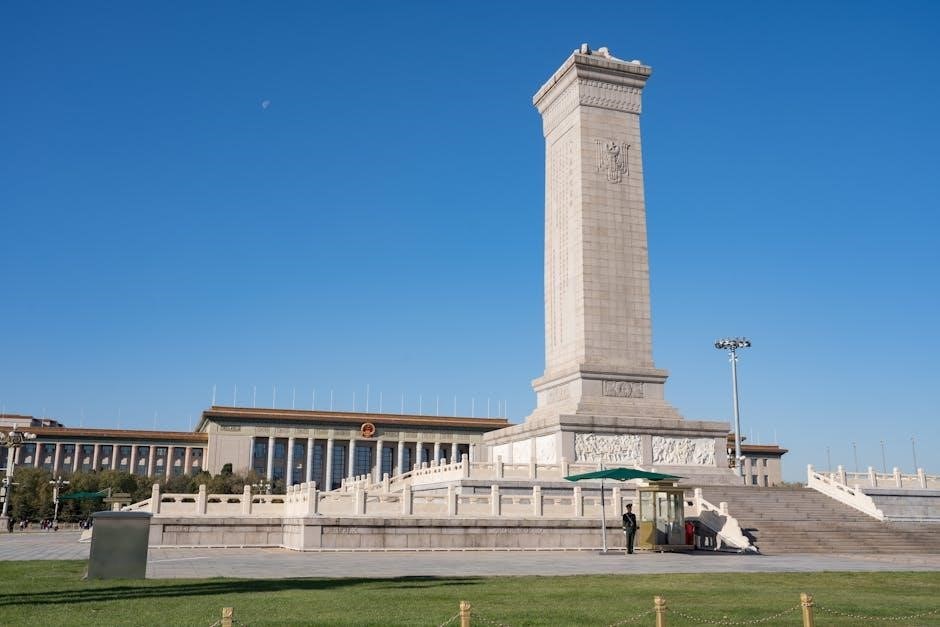
Origins of Political Slang in China
Chinese political slang traces its roots to historical events like the Cultural Revolution and Tiananmen Square, reflecting societal shifts and governance. The transition from Mao Zedong to Xi Jinping’s era introduced new terms, while the internet amplified their spread, blending humor with subtle critique of authority.
Historical Context: Mao Zedong to Xi Jinping
The evolution of Chinese political slang mirrors the nation’s leadership transitions, from Mao Zedong’s revolutionary rhetoric to Xi Jinping’s modern ideological frameworks. Mao’s era popularized terms like “Serve the People” and “Great Leap Forward,” embedding socialist ideals into public discourse. Deng Xiaoping’s “Reform and Opening Up” introduced market-oriented terminology, reflecting economic shifts. Jiang Zemin’s “Three Represents” and Hu Jintao’s “Scientific Development Concept” further refined party jargon. Under Xi Jinping, slogans like “Chinese Dream” and “Tigers and Flies” have gained prominence, symbolizing anti-corruption campaigns and national aspirations. These phrases, often repeated in official speeches and media, reflect the Communist Party’s adaptability to changing political and social landscapes. They also highlight the role of leadership in shaping public discourse, blending ideological consistency with contemporary relevance. Understanding these terms provides a window into China’s political evolution and the enduring influence of its leaders on national identity and policy direction.

Key Historical Events: Cultural Revolution and Tiananmen Square
The Cultural Revolution and Tiananmen Square are pivotal events that deeply influenced Chinese political slang; The Cultural Revolution (1966–1976) spawned terms like “Red Guards” and “Struggle Sessions,” reflecting Mao’s campaign to purge capitalist and traditional elements. These terms symbolized the chaos and ideological fervor of the era. The 1989 Tiananmen Square protests introduced phrases like “June 4th” and “Tank Man,” becoming potent symbols of dissent and censorship. Both events shaped how citizens express political sentiments indirectly, using coded language to avoid repression. Such slang not only captures the trauma and resilience of these periods but also illustrates the enduring struggle for free expression in China. These historical events continue to inspire contemporary slang, allowing netizens to critique authority while evading censorship. Understanding these terms is crucial for grasping the interplay between historical trauma and modern political discourse in China.
Role of the Internet and Censorship
The internet has become a breeding ground for Chinese political slang, as netizens creatively bypass censorship to discuss sensitive topics. Terms like “Grass-Mud Horse” (caonima) and “River Crab” (hexie) symbolize resistance to censorship and corruption. These phrases, often humorous or metaphorical, allow citizens to critique authority without direct confrontation. The rise of social media platforms like Weibo and WeChat has accelerated the spread of such slang, enabling real-time political discourse despite strict surveillance. Censorship, however, remains a driving force behind the evolution of slang, as netizens continually invent new terms to evade keyword filters. This cat-and-mouse dynamic highlights the resilience of online communities in expressing dissent. Organizations like China Digital Times have compiled glossaries of these terms, showcasing their importance in understanding China’s digital resistance. The internet’s role in amplifying these slang terms underscores its dual function as both a tool of control and a platform for subversive expression in China’s complex political landscape.
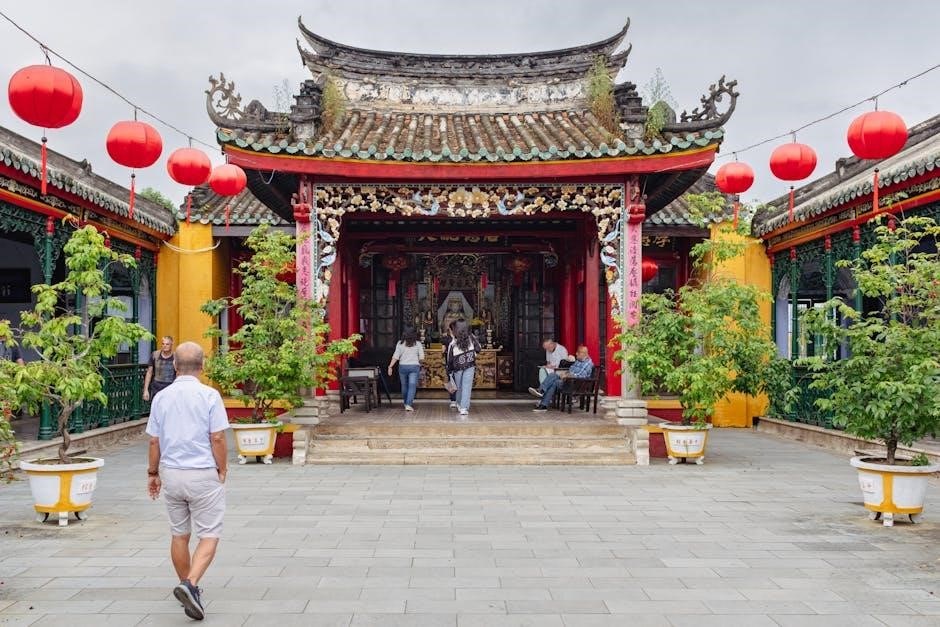
Key Political Slang Terms

Chinese political slang includes terms like “Grass-Mud Horse” (caonima) and “River Crab” (hexie), symbolizing resistance to censorship and corruption. These phrases, often humorous or metaphorical, reflect societal shifts and government policies, enabling indirect political critique while avoiding censorship.
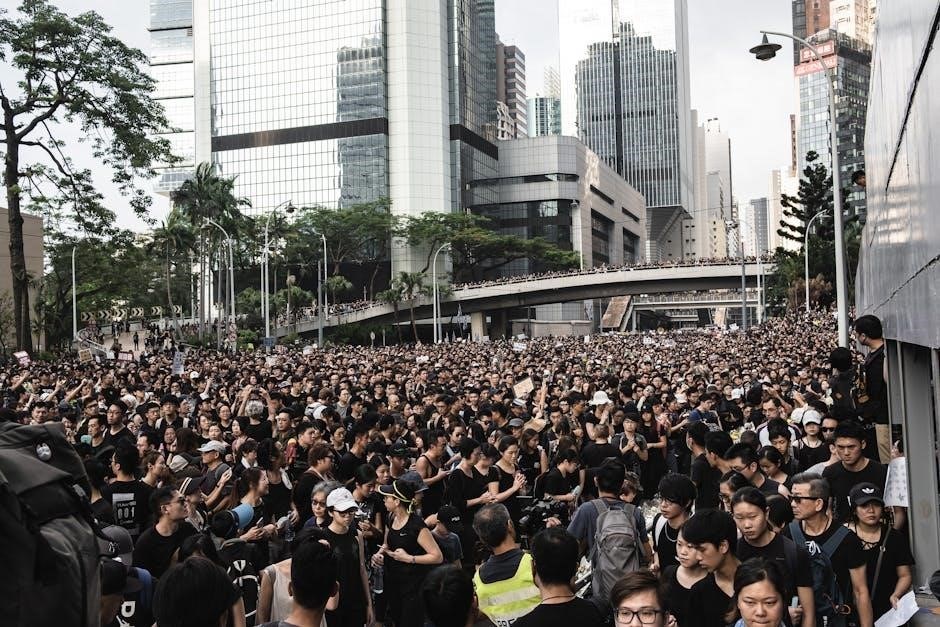
Communist Party Jargon: From “Tigers and Flies” to “Chinese Dream”
The Communist Party of China has consistently used unique jargon to convey its ideology and policies. Terms like “Tigers and Flies” emerged during Xi Jinping’s anti-corruption campaign, targeting high-ranking officials (“tigers”) and lower-level bureaucrats (“flies”). This slogan symbolized the party’s commitment to combating corruption at all levels. Another prominent phrase is the “Chinese Dream,” which encapsulates the vision of national rejuvenation and prosperity. This term, popularized by Xi Jinping, emphasizes collective aspiration over individualism, aligning with the party’s narrative of unity and shared goals.
Historically, Mao Zedong’s “Serve the People” and Deng Xiaoping’s “Reform and Opening Up” set the foundation for such sloganeering. These phrases are often integrated into official speeches, media, and education, reinforcing the party’s ideological framework. They also evolve to reflect contemporary challenges, such as the “Thought on Socialism with Chinese Characteristics for a New Era,” which underscores the party’s adaptability to modern governance. By coining such terms, the Communist Party seeks to inspire loyalty, justify policies, and maintain a connection with the populace.
These slogans are not just rhetorical devices but tools for shaping public discourse and legitimizing the party’s leadership. They resonate deeply in China’s political culture, reflecting both the aspirations and the complexities of the nation’s governance.
Internet Slang: Grass-Mud Horse and Beyond
Chinese internet slang has become a powerful tool for netizens to express dissent and bypass censorship. One of the most iconic examples is the “Grass-Mud Horse,” a term that embodies resistance and satire. This meme, which sounds similar to a vulgar phrase in Chinese, symbolizes the creative ways citizens critique government policies and societal issues without directly confronting authorities. Other popular terms include “River Crab,” a metaphor for internet censorship, and “Harmonious,” which ironically refers to the suppression of online dissent.
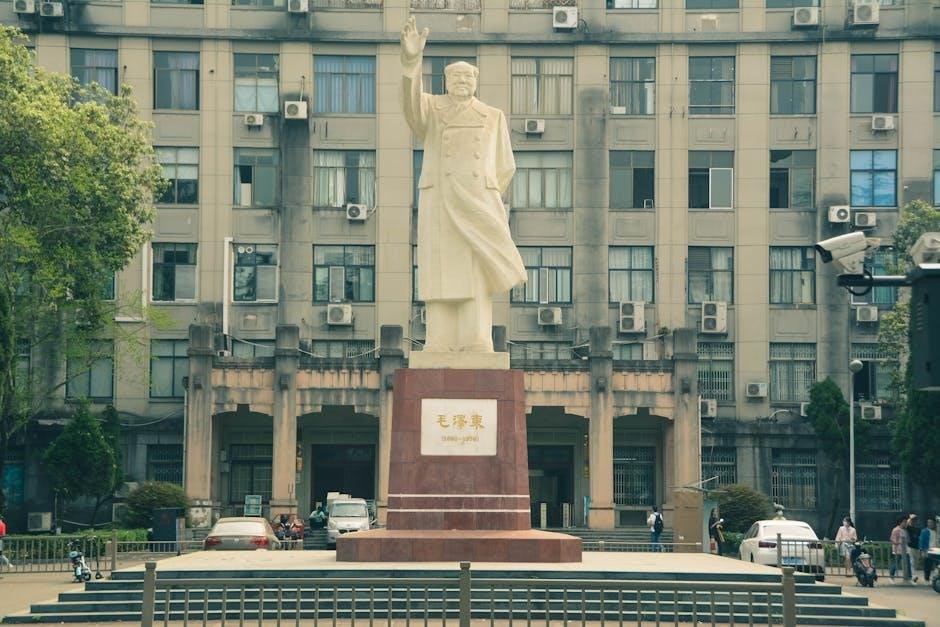
These slang terms often spread virally through social media platforms, gaining cultural significance and becoming part of everyday discourse. They are frequently used to mock propaganda, highlight bureaucratic inefficiencies, or address sensitive topics like corruption and human rights. By using such language, netizens create a shared lexicon that fosters solidarity and provides a safe space for political commentary. This phenomenon reflects the dynamic interplay between censorship and creativity in China’s digital landscape, showcasing how internet culture has become a frontier for subtle resistance and activism.
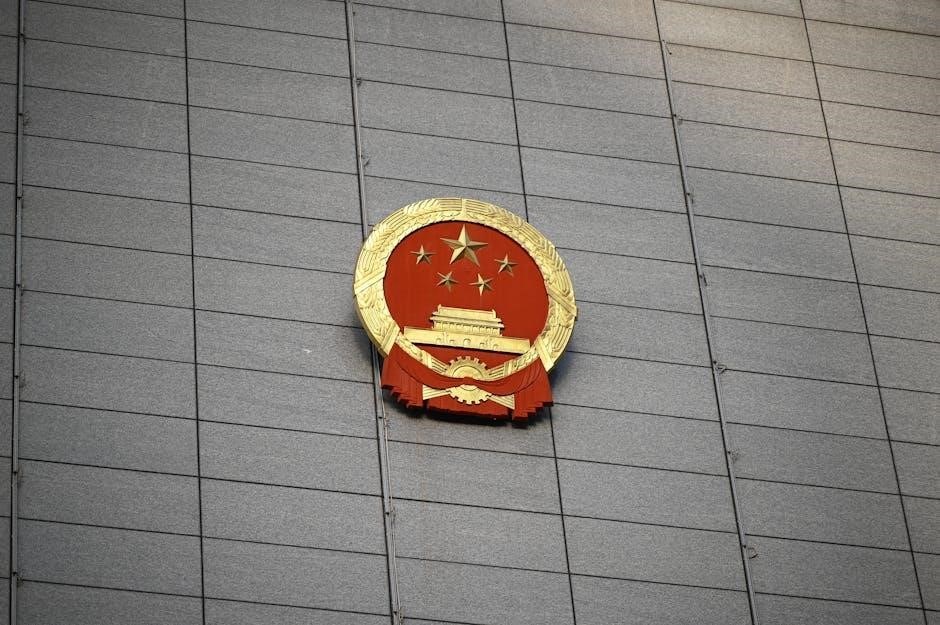
Modern Usage of Political Slang
In modern China, political slang thrives on social media, memes, and online forums, allowing netizens to critique policies and societal issues indirectly. Censorship has fueled creativity, making such language a subtle yet powerful tool for activism and public discourse.
Impact of Social Media and Memes
Social media and memes have become pivotal in spreading and evolving China’s political slang, enabling netizens to critique policies and societal issues discreetly. Memes, like the iconic “Grass-Mud Horse,” symbolize resistance and satire, often evading censorship through humor and ambiguity.
Platforms such as Weibo and WeChat serve as breeding grounds for these expressions, despite strict monitoring. Memes and slang spread rapidly, allowing citizens to engage in veiled political discourse. Their viral nature ensures that even marginalized voices gain traction, fostering a sense of community among users.
Moreover, the visual and humorous nature of memes makes them more relatable and shareable, bypassing traditional censorship barriers. This digital phenomenon reflects the creativity and resilience of netizens in navigating China’s restrictive online environment, ensuring political slang remains a dynamic and influential force.

Role of Censorship and Netizens
The interplay between censorship and netizens has been instrumental in shaping China’s political slang. Strict internet controls force netizens to devise creative, encoded language to discuss sensitive topics, ensuring their voices are heard without directly challenging authorities.
Censorship acts as both a barrier and a catalyst. By limiting free expression, it drives the creation of euphemisms and metaphors, such as “Grass-Mud Horse,” which mock censorship itself. Netizens continuously adapt, inventing new terms to evade detection and express dissent subtly.
This dynamic language reflects the resilience of netizens in navigating China’s controlled online environment. It not only serves as a tool for critique but also fosters a sense of solidarity among those who understand the coded meanings. Despite censorship’s constraints, netizens’ ingenuity ensures political slang remains a powerful form of resistance and expression.
Globalization and Foreign Influence
Globalization has significantly influenced the evolution of China’s political slang, blending domestic expressions with international motifs. The integration of global culture and events has enriched this unique linguistic landscape, creating hybrid terms that resonate both locally and internationally.
Foreign influences, particularly from Western media and social platforms, have inspired Chinese netizens to adopt and adapt global memes and phrases. This cross-cultural exchange is evident in how international events, like the U.S.-China trade war, have spawned localized slang such as “TACO Trump,” reflecting global interconnectedness.
Moreover, the global dissemination of Chinese political slang has opened new avenues for international understanding of China’s internal dynamics. Terms like “Grass-Mud Horse” have gained recognition worldwide, symbolizing the creativity and resilience of Chinese netizens in the face of censorship. This phenomenon underscores how globalization facilitates the exchange of ideas, even in politically restrictive environments.
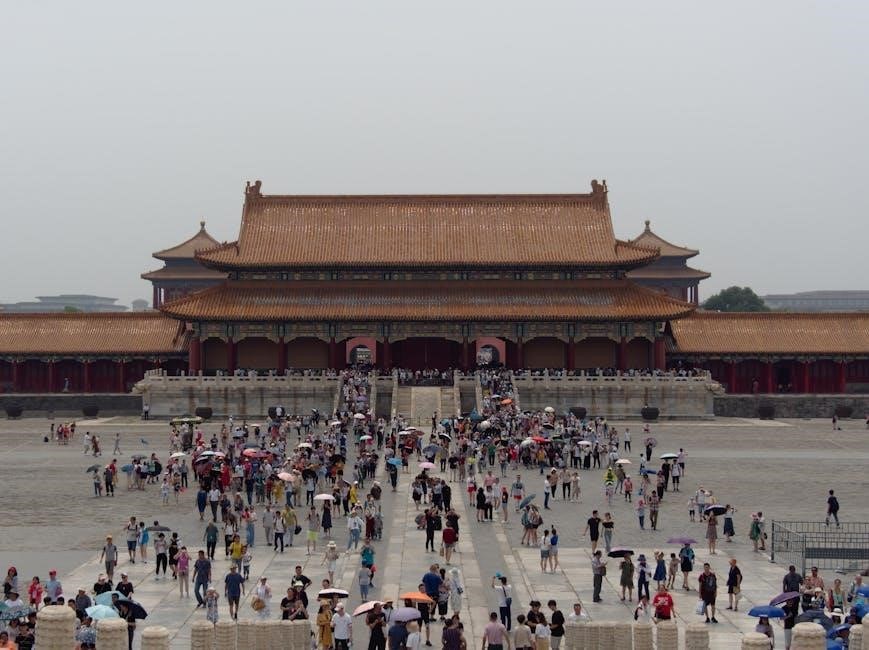
Cultural Impact of Political Slang
Chinese political slang reflects societal shifts, government policies, and cultural resistance. It serves as a mirror to the nation’s evolving values, enabling indirect commentary on sensitive issues. This linguistic creativity fosters public discourse and activism, becoming a powerful tool for social critique and resistance.
Reflection of Societal Shifts and Government Policies
Chinese political slang serves as a dynamic reflection of societal shifts and government policies. It encapsulates the evolving values and challenges of the nation, offering insights into public sentiment and official ideologies. Historical events like the Cultural Revolution and Tiananmen Square have influenced the creation of terms that subtly critique or align with state narratives. For instance, slogans such as “Tigers and Flies” from Xi Jinping’s anti-corruption campaign or “Chinese Dream” highlight shifting priorities. These phrases, often propagated by leaders, resonate with broader societal aspirations and concerns. Additionally, internet slang like “Grass-Mud Horse” symbolizes resistance to censorship, mirroring the tension between governance and public expression. Over time, political slang has become a tool for both promoting and subverting government agendas, illustrating the complex interplay between state power and societal discourse.
Role in Public Discourse and Activism
Political slang in China plays a crucial role in public discourse and activism, enabling individuals to engage in nuanced discussions about sensitive topics. By employing coded language, netizens and activists circumvent censorship, expressing dissent or critique indirectly. Terms like “Grass-Mud Horse” symbolize resistance, while phrases such as “River Crab” mock internet censorship, fostering a sense of solidarity among those who understand the subtext. This linguistic creativity allows for the dissemination of alternative narratives, challenging official discourses. Moreover, political slang has become a tool for social cohesion, with memes and catchphrases spreading rapidly through social media. These expressions not only reflect public sentiment but also inspire collective action, albeit often in subtle forms. In this way, political slang serves as both a shield against surveillance and a weapon for advocating change, demonstrating the resilience of public discourse in a controlled environment. It highlights the creative strategies employed by Chinese citizens to navigate and influence their political landscape.
Mastering Chinese political slang is essential for understanding the nation’s socio-political dynamics. This guide offers insights into key terms, historical contexts, and modern usage, empowering readers to navigate China’s complex linguistic and political terrain effectively.
Glossary of Essential Terms
A comprehensive glossary of Chinese political slang is crucial for deciphering the country’s intricate linguistic landscape. Terms like “Grass-Mud Horse” symbolize resistance to censorship, while “Tigers and Flies” refer to anti-corruption campaigns targeting both high-ranking officials and lower-level bureaucrats. “Chinese Dream” embodies the nation’s aspirations for prosperity and rejuvenation. Other phrases, such as “Serve the People,” reflect the Communist Party’s foundational ideology. These terms, often evolving rapidly due to internet culture, provide a window into China’s political discourse, blending propaganda, satire, and societal critique. Understanding these expressions is vital for grasping the nuances of China’s contemporary political environment and the creative strategies citizens employ to communicate within a controlled information space.
How to Use Political Slang in Everyday Context
Mastering the use of political slang in China requires a delicate balance of knowledge and caution. Begin by familiarizing yourself with common terms like “Grass-Mud Horse” and “Tigers and Flies,” understanding their metaphorical meanings and the contexts in which they are used. When engaging in conversations, especially in private settings with trusted individuals, use these terms thoughtfully to convey nuanced opinions on sensitive topics. However, exercise restraint in public or online platforms, where such language might attract unwanted attention. Stay attuned to cultural nuances and observe how locals employ these phrases, mirroring their approach to blend in seamlessly. Additionally, remain informed about current events, as slang evolves rapidly in China’s dynamic environment. Lastly, be mindful of legal implications and avoid using slang in formal or unfamiliar settings. By doing so, you can effectively navigate and use political slang to connect with others while maintaining awareness of the surrounding cultural and political landscape.